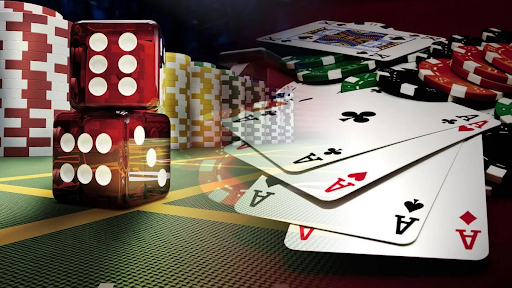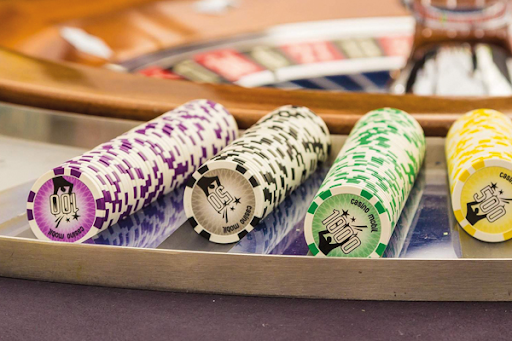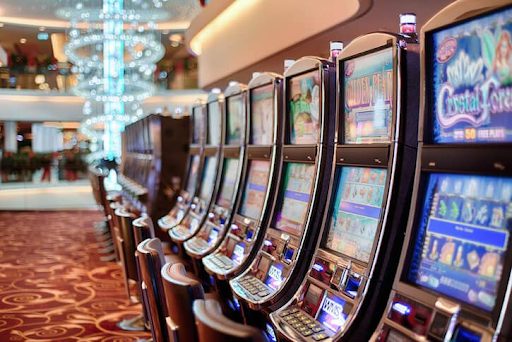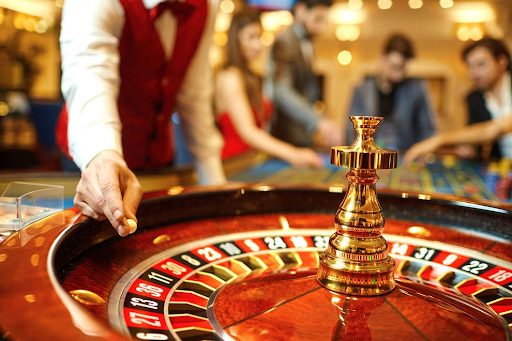The gambling industry is growing rapidly. As technology advances, many people get involved in the gambling market and enjoy playing beautifully designed games on their desktops and mobile devices. The iGaming market is very competitive, and many online casinos are working hard to offer their customers something impressive. Casino games are tempting and fascinating. Moreover, new games are regularly published with a set of new, improved, and exciting features.
All enhancements have the purpose of attracting, engaging, and retaining customers. However, that is not that easy to achieve. The iGaming companies must follow specific gambling laws tied to a particular market. Failing to follow rules that apply in certain jurisdictions can lead to financial and legal repercussions. That is why casino game developers must be aware of the main differences between chance-based casino games and skill-based games.
The Variety of Gambling Games
There are thousands of thrilling casino games out there, each attractive in its unique way. As a result, players have a great choice for gambling and picking what they want to play.
Ultimately, there are two groups of games – one group is where games depend more on the players’ skill, and the other is where luck is the main factor that decides the outcome.
Sometimes the line between games of chance and games of skill is thin, making some of them challenging to classify correctly. However, here we will go deeper into what are the games of skill and games of chance.
Games of Skill
Skill-based games are types of games where the player affects the outcome. Reaching success in these games depends on how knowledgeable players are with the game’s rules and how efficiently and tactically they play. With games of skill, players can evaluate their capabilities, re-adjust if necessary, and regular practice can make them experts in the game.
Players that play games of skill are always trying new strategies to see what works and what does not. Skill-based game players are also considered professionals in the industry as they compete at the highest level. Some even make a living from it, like the poker players, for example.
A thing to know, however, is that even games of skill feature an element of luck. So you will need some luck to win these games, but ultimately success is determined by individual ability.
Many skill-based gambling websites appeared on the market in recent years, offering players a chance to compete with others. Nowadays, you can easily log in and play against players from all over the world for free or for real money.

Chess and checkers are a couple of skill-based games. Some card games, like poker and puzzle games, are also in the group of skill-based games. Again, they mainly depend on skill but have an element of luck attached to them as well.
Games of Chance
Games based on chance are games in which luck is the main factor determining the winner. They are completely random, have a small element of skill, but ultimately depend on chance. There is no way of knowing in advance what the outcome will be.
Games of chance have been around since ancient times, with some records pointing out that even prehistoric people gambled with animal bones sometime around 3000 BC. Chance-based games are much easier to play and develop than games of skills, which is why such games have been around since the beginning of humanity.
Games of chance and probability of winning are closely connected. As a result, many gambling professionals, enthusiasts, and researchers are looking at probability odds, searching for ways to improve their winning chances.
For the ultimate thrill from the games of chance, you can try and play high stakes roulette to experience the excitement that comes from such games. Other examples of chance-based games include bingo, lotto, and some card games.
The Difference Between Chance-Based and Skill-Based Gambling
Players can win in games of chance short-term and make money off them, but they are not profitable in the long term. On the other hand, players can beat skill-based games over time, which are more profitable in the long run.
Governments and casinos usually apply two methods when determining whether a game will be classified as a game of chance or labeled as a game of skill. First, they establish who the player’s opponent is. The game is classified as a game of chance if the player plays against the house, such as in the slot machines.

However, if the player competes against another player, the game is classified as a game of skill. In general, the game is skill-based if the player can apply strategies, use math or statistical advantages to win.
| Games of Skill | Games of Chance |
| Chess | Slots |
| Checkers | Roulette |
| Poker | Blackjack |
| Backgammon | Baccarat |
| Mahjong | Craps |
| Dominoes | Keno |
| Rummy | Lotto |
| Bridge | Bingo |
Characteristics of Games of Skill
Skill-based games focus on a player’s mental and physical abilities—a player’s individual skills matter in achieving victory. Such games allow them to develop their skills and proficiency through regular game practice. Skill-based games reward players who continually learn the rules and create and apply strategies that help them win.
Most skill-based games require strong determination and regular practice to gain a more profound knowledge of the game and succeed. Nevertheless, we can see some positive examples of players like Daniel Negreanu, Doyle Brunson, or Phil Ivey, who have had tremendous success and make a living playing poker.
However, some people think that the luck of the cards cannot be labeled as a ‘skill.’ Anyhow, different countries have different rules for labeling games to be of ‘skill’ or ‘chance.’
For example, in the United States, many judges have ruled that Texas Hold’Em poker is a skill-based game, while in Germany, this game is considered a chance-based game.

Examples of Games of Skill
Chess, checkers, backgammon, and Texas Hold’Em poker are the most popular skill-based games in the iGaming industry. In these games, players battle against each other and not against the house. As a result, experienced players in these games will always have an edge, unlike in chance-based games.
Different techniques, strategies, tactics, and playing styles can be used in these skill-based games. Players can adjust and try many different things to help them against other players who play in a specific way. In all these skill-based games such as chess, poker, or checkers, players can take different actions more than once. Players also influence the course of the game they play.
For example, in poker, there are many things that players must consider and do during gameplay. Some things like the player’s position, stack sizes, pot odds, strategy, and actions of opponents, hand range of opponents, cards in hand, cards on the table influence the player’s decision.
For poker players to be successful, they must have a mathematical understanding of the game and analytical power. Besides that, they must be attentive, have a good memory, and have the ability to make quick decisions. Strategic thinking and adaptiveness are also essential factors for success in skill-based games like the Texas Hold’Em poker.
Examples of Games of Chance

There are many more games of chance than there are games of skill. Nevertheless, gambling games are exciting, attractive, and usually provide higher payouts in the short term. The most popular gambling games include roulette, blackjack, baccarat, craps, video poker, slots, etc. In some parts of the world, such as Great Britain and Australia, the predominant gambling games are bingo and the lotto. Here are some examples of games of chance with brief descriptions.
- Roulette – Roulette is considered a ‘Cadillac of Casino Chance Games’. You pick a number, sequence of numbers, the color red or black, odds or evens, place inside or outside bets, and other types of bets. It is the most thrilling casino game of chance, with quick action and great payouts.
- Blackjack – an exciting and straightforward card game where your main goal is to go as close to 21 but not over.
- Baccarat – the dealer draws a pair of cards to the banker and the player, and whoever’s hand is closer to nine is the winner.
- Keno – similar to lottery, but with a twist. You need to choose a series of numbers, and the house makes the random draw. The higher the number of matched numbers, the bigger the win.
- Craps – an attractive dice game where players can bet on the outcome of the roll. You have many wagers available to make in this casino game, clearly displayed on the craps table.

- Video Slots – these are probably the best example of chance-based casino games. You press a button, wait for the spin to finish, and see whether you have the winning combination of symbols. Modern slot variants also include side games that may reward players with free spins and other bonuses.
- Sports betting – Many people believe that sports betting is skill-based, but any game you cannot know the match outcome will be is considered a chance-based game. In sports betting, you place a bet predicting how you believe the result will be, but the outcome is left to chance. So even if you used your skills and researched everything in advance to make an informed bet, there is no guarantee about the game’s result.
Worldwide Gambling Regulations and Jurisdictions
Many countries in the world allow skill-based games but forbid chance-based ones. It depends from place to place, and there is no general jurisdiction that everyone follows.
For example, in the European Union, there is no gambling-specific regulation for all countries that have to follow. That is left to each country by itself. The EU members have the autonomy to choose what type of gambling laws and regulations they will introduce for their citizens.
Most European Union member countries allow some chance-based games in licensed casinos, both offline and online. However, some countries allow all types of casino games, while others only allow lotto, bingo, and sports betting.
Across Europe, there are also specific jurisdictions where the state controls the gambling operators and give permission to an operator to work as a monopoly on the market, offering particular games.
However, this area is constantly changing and opening up. Many countries are working on laws and regulations that allow skill-based and chance-based games in online and offline casinos. These things take a while before they pass through the parliaments and become a law, but things move forward.
Finally, a thing to know regarding EU legislation is that there is no uniform system in favor or prescribed for following in all countries.

Gambling in the United States
Different states within the USA have different rules and legal requirements about what consists of a game of skill and what labels a game of chance. Some games belong in the grey area, such as poker, which some states consider a game of chance while others a game of skill.
Also, Fantasy Sports and sports betting are both controversial topics, with many arguing whether they are games of skill or chance. Each state is very different with its rules, and at the moment, there is no uniform federal guideline or regulation.
Gambling in Asia
Asia is a gambling market that grows at a rapid pace. Gambling legalization of games of skill and games of chance is entering almost every country, although some go faster than others. Currently, China has the most restrictions when it comes to gambling, only allowing a national lottery.
Macao and Hong Kong are currently the gambling meccas in the Asian part of the world, operating under different rules than other countries in Asia. These two places are more liberal with their gambling laws and regulations, attracting people from all over the world. They are also well-known places for high-stakes casino games and their excellent treatment of casino players from everywhere.
Gambling in Other Parts of the World
In recent years, Brazil is emerging as one of the top places for gamblers. Interestingly, 80 years ago, gambling was completely forbidden there. There was no regulation or legislation for this area. However, in 2018 the Brazilian government passed gambling legislation that made it very easy for players to gamble online.
Currently, Brazil gets significant revenue from regulated gambling, allowing the government to spend that money to develop the country further. The Covid-19 pandemic slowed things down, but online gambling is now at an all-time high and is expected to go further up.

Sports betting is still not allowed, but poker is going through a boom in Brazil. It is classified as a game of skill, and regular tournaments are constantly going on in online poker rooms.
Besides Brazil, Australia is also going through gambling regulations. Australia does not have a uniform gambling law, and each state has the liberty to regulate this field. Australia is a large gambling market, but legislation is still reasonably strict in most places.
However, recent studies show that over 80% of the Australian adult population engages in at least one type of gambling activity despite strict gambling regulations. That makes the Australian market very lucrative, with many foreign online casinos standing by to enter the market when they are allowed to do so.
Currently, Australian federal gambling legislation forbids the usage of online casinos, slots, and playing poker. However, bingo is allowed, as it runs under another set of regulations than casino games.
Interestingly, some places like New South Wales allow people to play skill-based games for real money, but it prohibits people from playing chance-based games.
The Australian gambling market has vast potential, but it is still rigorous at the moment. Specific changes are expected to be implemented soon, but we will have to wait and see how it goes.
The Future of Gambling Industry
The gambling industry has come a very long way since its shady beginnings. What moves the gambling industry forward is the technology, which moves at a stunning pace. Things change much faster than the governments and the laws. However, modern politicians are starting to see the benefits of this industry and are slowly adapting to the new gambling environment.

Looking back at this last decade, we can see that online gambling is growing year after year, without any signs of stopping anytime soon. New, modern online casinos are emerging, providing gamblers with ultimate entertainment and great value for their money. The iGaming operators work around the clock to create something spectacular for the players and capitalize on this competitive industry.
The developments in the gambling industry have narrowed the gap between skill-based and chance-based casino games. Now, casino games are moving closer to video games, where the combination of skill and luck is necessary for success. However, things are never black and white, so games of skill and games of chance are closely linked.
The fact is that more and more people engage with gambling websites and iGaming apps, and that trend will continue in the upcoming years. In addition, gambling is now regulated in many countries globally, and legislation is also changing similarly to how gambling changes.
iGaming operators follow many guidelines for creating games of skill and chance, investing their time, money, energy, and other resources to make compliant games. That will also continue in the future when we should expect to see some top-quality casino games, where you would have to have both skills and luck to win.
iGaming technology will continue to revolutionize the gambling industry, ultimately leading to the worldwide acceptance of casino games.
Conclusion
People are spoiled for choice regarding the availability of casino games to play. There are various types of casino games for different types of entertainment. Everyone can find their favorite, and a little research will present you with thousands of gaming options. The truth is that every player has different needs and requirements when it comes to games.
Some prefer to test their skills in playing games against others, while others prefer quick chance-based casino games where they can win big without following any particular strategies.

There are no ‘right’ or ‘wrong’ games to play, as both chance-based and skill-based games are here to stay. You can try both groups and see what fits you the most. In any case, you are guaranteed many hours of online fun and entertainment regardless of what you choose.
The fact is that both chance-based and skill-based games will continue to dominate the gaming markets worldwide. Currently, some games are prohibited in certain jurisdictions, which hopefully will change soon.
The vital thing to know regarding this matter is that people have options. Even in places where chance-based and skill-based games are currently prohibited for playing for real money, players can still play them for fun. Demo versions of games are there to keep them entertained until legislation takes place.
Hopefully, this will trigger your curiosity to learn more about casino games, regulations, and modern developments. So make sure you keep up and follow the latest information in this constantly changing industry.
We recommend you explore all games available to you and pick something suitable for your taste and preferences. Studying all games will give you a good idea of what you can expect short-term and long-term. Each set of games has its advantages and disadvantages, and it is up to you to explore them.
Both skill-based and chance-based games have their charm and beauty, providing something unique that keeps players interested. So enjoy playing games, and stay tuned for more information coming from the lucrative iGaming industry.





